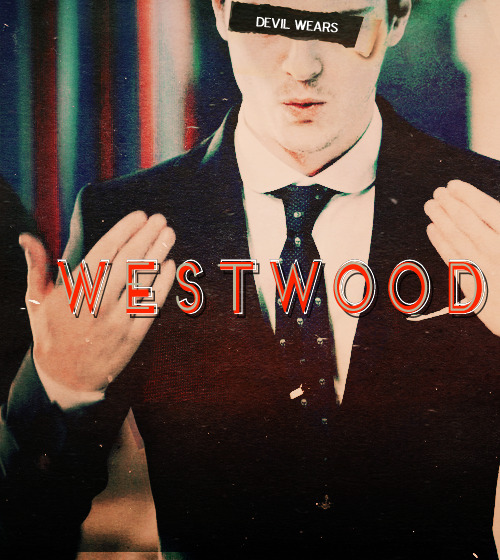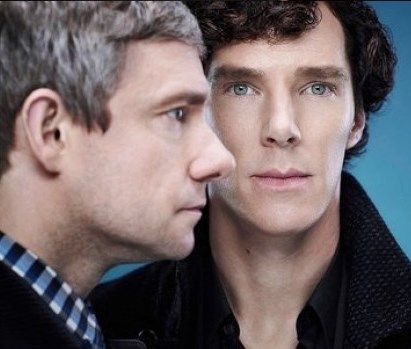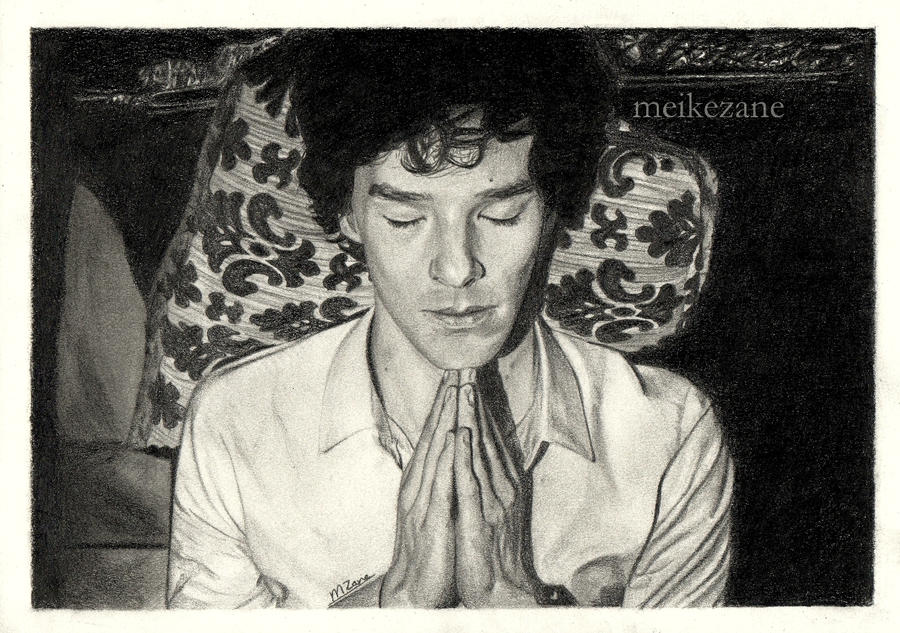
BBC Sherlock Fan Forum - Serving Sherlockians since February 2012.
- Linkar
- Wrong!
 Offline
Offline - Registered: October 11, 2013
- Posts: 2
Sherlock turns evil/becomes Moriarty
Hi, in the first place I would like to apologize for my english. It is not my native(first) language.
I am fan of this sries and I have one question.
Is there any chance that Sherlock would turn evil or diabolic in way like Moriarty is?
I would consider revenge for death of Dr. Watson for example or any kind of betrayal.
Thank You for Yours replies.
- SusiGo
- The game is never over (moderator)
 Offline
Offline 
- From: Germany
- Registered: June 5, 2012
- Posts: 22,969
Re: Sherlock turns evil/becomes Moriarty
I don't think that this is possible within the frame of the series and the fans do not want see that. I can imagine him getting violent to protect John. But he will not turn into a villian.
However, there is a pastiche in which Holmes turns out to be Jack the Ripper. I stopped reading somewhere in the middle. Too terrible an idea for me and totally out of character. ![]()
------------------------------
"To fake the death of one sibling may be regarded as a misfortune; to fake the death of both looks like carelessness." Oscar Wilde about Mycroft Holmes
"It is what it is says love." (Erich Fried)
“Enjoy the journey of life and not just the endgame. I’m also a great believer in treating others as you would like to be treated.” (Benedict Cumberbatch)

- Linkar
- Wrong!
 Offline
Offline - Registered: October 11, 2013
- Posts: 2
Re: Sherlock turns evil/becomes Moriarty
Thank You.
That is within the series and within the books?
I mean, is there any indication in the books, he might become an outlaw?
In certain way he already is. He's at least antisocial. But he wouldn't kill/murder for his own benefit. Look, all I am saying he has great potential to become Moriarty. But has he got reason?
Last edited by Linkar (October 11, 2013 9:11 pm)
- •
- SusiGo
- The game is never over (moderator)
 Offline
Offline 
- From: Germany
- Registered: June 5, 2012
- Posts: 22,969
Re: Sherlock turns evil/becomes Moriarty
I think in the books there is no indication either that he might become a villain. The parallels between him and Moriarty are much stronger in the the series than in the books. But the difference is, as Moriarty puts it, that Sherlock is on the side of the angels (even if he is not one of them). Even if he does not do sentiment he keeps saving lives again and again.
------------------------------
"To fake the death of one sibling may be regarded as a misfortune; to fake the death of both looks like carelessness." Oscar Wilde about Mycroft Holmes
"It is what it is says love." (Erich Fried)
“Enjoy the journey of life and not just the endgame. I’m also a great believer in treating others as you would like to be treated.” (Benedict Cumberbatch)

- sj4iy
- High Functioning Sociopath
 Offline
Offline 
- From: USA
- Registered: June 12, 2013
- Posts: 2,692
Re: Sherlock turns evil/becomes Moriarty
In this series, they did a very good job of contrasting Sherlock to Moriarty. Sherlock actually thinks he could be Moriarty, and that it's simply his choice to not be like him. However, over the course of the 6 episodes, he finds out more and more about himself until he realizes that he could NEVER be like Moriarty. His character arc is very definite about this. Sherlock cares about others, especially John and Mrs. Hudson, while Moriarty only sees ordinary people as pawns in his games.
So no, I don't think that he could ever become evil, even with reason.
__________________________________________________________________Bigby: Will you shut up?
Colin: Well, maybe if my throat wasn’t so parched, I wouldn’t have to keep talking.
Bigby: Wait, that doesn’t make se-
Coline: Just give me a drink, please.
- Mini Moriarty
- Wrong!
 Offline
Offline 
- From: Galifrey
- Registered: October 24, 2013
- Posts: 5
Re: Sherlock turns evil/becomes Moriarty
Sherlock could become evil, then we could have more sexy villians!
- tonnaree
- The "B" is SILENT! (Mod)
 Offline
Offline 
- From: Atlanta, Georgia, USA
- Registered: May 31, 2013
- Posts: 9,270
Re: Sherlock turns evil/becomes Moriarty
In a sense, we all have the "potential" for evil in us. But for most of us it would take something so extreme to bring it out that it might as well not be there.
Sherlock may be a bit more aware of his potential than the average person but I don't ever see him turning to it. His sentiment may be buried deep but it is there. He still has lines he won't cross. He tossed a guy out of a window for hurting Mrs. Hudson, but he would have never just shot him in the head.
Last edited by tonnaree (October 31, 2013 1:25 pm)
----------------------------------------------------------------------
Proud President and Founder of the OSAJ.
Honorary German
"Anyone who takes himself too seriously always runs the risk of looking ridiculous; anyone who can consistently laugh at himself does not".
-Vaclav Havel
"Life is full of wonder, Love is never wrong." Melissa Ethridge
I ship it harder than Mrs. Hudson.


- teaEarlGrayhot
- Not A Hero
 Offline
Offline 
- From: Virginia, USA
- Registered: September 8, 2013
- Posts: 41
Re: Sherlock turns evil/becomes Moriarty
It's a good question becuase it gets at the heart of the story.
There is a lot of wonderful tension in Sherlock's character exactly becuase he could be a villain. He's smart enough and resourceful enough. And he is rejected by many "normal" people. Look at the way Sally and Anderson treat him. Why should he care about people? Sherlock's own brother tells him that "Caring is not an advantage."
But Sherlock has a heart. And Sherlock's heart has John in it, and Molly, and Mrs. Hudson, and maybe even a little room for Lestrade. Sherlock is a great man and might even be a good one, somebody once said ;-)
But the tension between what Sherlock could do and what he does do is part of what makes him so fascinating.
.................................................................
M: Tradition, John. Our traditions define us.
Harry: ...And Mr. Holmes, the younger. You look taller in your photographs.
SH: I take the precaution of a good coat and a short friend.
- Jacco111
- John's Army
 Offline
Offline 
- Registered: January 19, 2013
- Posts: 308
Re: Sherlock turns evil/becomes Moriarty
sj4iy wrote:
In this series, they did a very good job of contrasting Sherlock to Moriarty. Sherlock actually thinks he could be Moriarty, and that it's simply his choice to not be like him. However, over the course of the 6 episodes, he finds out more and more about himself until he realizes that he could NEVER be like Moriarty. His character arc is very definite about this. Sherlock cares about others, especially John and Mrs. Hudson, while Moriarty only sees ordinary people as pawns in his games.
So no, I don't think that he could ever become evil, even with reason.
“It is fortunate for this community that I am not a criminal.” - Sherlock Holmes, The Bruce-Partington Plans
-------------------------------------------------------------------------------------------------------------
"The world is big enough for us, no ghosts need apply"
- Mary Me
- High Functioning Sociopath
 Offline
Offline 
- From: Germany, Bonn
- Registered: January 8, 2013
- Posts: 3,250
Re: Sherlock turns evil/becomes Moriarty
sj4iy wrote:
In this series, they did a very good job of contrasting Sherlock to Moriarty. Sherlock actually thinks he could be Moriarty, and that it's simply his choice to not be like him. However, over the course of the 6 episodes, he finds out more and more about himself until he realizes that he could NEVER be like Moriarty. His character arc is very definite about this. Sherlock cares about others, especially John and Mrs. Hudson, while Moriarty only sees ordinary people as pawns in his games.
So no, I don't think that he could ever become evil, even with reason.
Oh, that was so beautifully put, I couldn't agree more with your analysis about Sherlock. ![]()
~~~~~~~~~~~~~~~~~~~~~~~~~~~~~~~~~~~~~~~~~~
"Falling is just like flying, except there’s a more permanent destination."
"Sherlock Holmes is a great man, and I think one day—if we’re very very lucky—he might even be a good one."
"Would you like to-"
"-have dinner?"
"-solve crimes?"
"Oh"

- Ormond Sacker
- John's Army
 Offline
Offline - From: Denmark
- Registered: September 29, 2013
- Posts: 329
Re: Sherlock turns evil/becomes Moriarty
Jacco111 wrote:
sj4iy wrote:
In this series, they did a very good job of contrasting Sherlock to Moriarty. Sherlock actually thinks he could be Moriarty, and that it's simply his choice to not be like him. However, over the course of the 6 episodes, he finds out more and more about himself until he realizes that he could NEVER be like Moriarty. His character arc is very definite about this. Sherlock cares about others, especially John and Mrs. Hudson, while Moriarty only sees ordinary people as pawns in his games.
So no, I don't think that he could ever become evil, even with reason.“It is fortunate for this community that I am not a criminal.” - Sherlock Holmes, The Bruce-Partington Plans
And the modern version:
"I don't know what's got into the criminal classes, good job I'm not one of them" (The Great Game)
---------------------------------------------------------------------------------------------
Is it nice not being me? It must be so relaxing.
An apostrophe makes the difference between a business that knows its shit, and a business that knows it's shit.
- KeepersPrice
- Official Blogger
 Offline
Offline 
- From: Andover, Massachusetts
- Registered: June 8, 2012
- Posts: 1,721
Re: Sherlock turns evil/becomes Moriarty
Interesting topic and well put in the posts. Personally I've often wondered about Mycroft's line to John concerning Sherlock's career choice. He could have been a scientist or philosopher but chose to be a detective. "What might we deduce about his heart?" Yes, good question. If someone becomes a detective, what does that tell us about their heart?
---------------------------------------------------------------------------------------------------------------------------------------------
And I said "dangerous" and here you are.
You. It's always you. John Watson, you keep me right.

- ChrisHale
- Shooting The Wall
 Offline
Offline 
- Registered: November 27, 2013
- Posts: 14
Re: Sherlock turns evil/becomes Moriarty
teaEarlGrayhot wrote:
There is a lot of wonderful tension in Sherlock's character exactly becuase he could be a villain.
Brilliantly put. It's all about the tension, the possibility; wondering whether he could 'turn' is far more fun than finding out.
- Be
- Unregistered
Re: Sherlock turns evil/becomes Moriarty
The writers provoke the idea of Sherlock being tempted to step across the line into the darkness although I think Sherlock (like Holmes in canon) plays by his own rules and likes to decide about right and wrong himself. In canon Holmes is prepared to give his own life in case he at the same time could kill Moriarty. And in retrospect looking at TRF the fallout is telling: Moriarty is dead and Sherlock is alive. And if it is the only possible solution and the rules are wrong (meaning you can't legally convict Moriarty because of his Brook personality) the victim has to do it.
We have got the encounter with Mycroft in Scandal when the brothers talk to each other on the phone and in the morgue about law.
1. Sherlock on the phone on Christmas. Mycroft: “We’re not going to have Christmas phone calls now, are we? Have they passed a new law?” The implication is that Sherlock never does social calls on Christmas. Mycroft’s subtext is probably: You would only call me on Christmas if there were a law that said: Don’t call your sibling on Christmas. If it were not allowed Sherlock would do it. He is the one to break the rule when he wants to. He is unconventional and no-one for social niceties.
2. Mycroft offers a cigarette and Sherlock asks: Isn’t there one of these law things? And Mycroft mockingly answers: We’re in a morgue. There's only so much damage you can do. Sherlock plays the ball back as if the phone call conversation goes on about law. Why do you offer a cigarette when you always play by the rules. You are so conventional and boring. The subtext there is from Mycroft: Even you can’t destroy anything here in a morgue with your tendency to break every rule available and bring disaster upon something.
- Henry.Baskerville
- Wrong!
 Offline
Offline 
- Registered: December 25, 2013
- Posts: 9
Re: Sherlock turns evil/becomes Moriarty
That would be the Worst news for scotland yard cause the case will never be close.![]()
Watson: What are you so happy about?
Sherlock: Moriarty.
Watson: What's Moriarty?
Sherlock: I have absolutely no idea.

 1 of 1
1 of 1